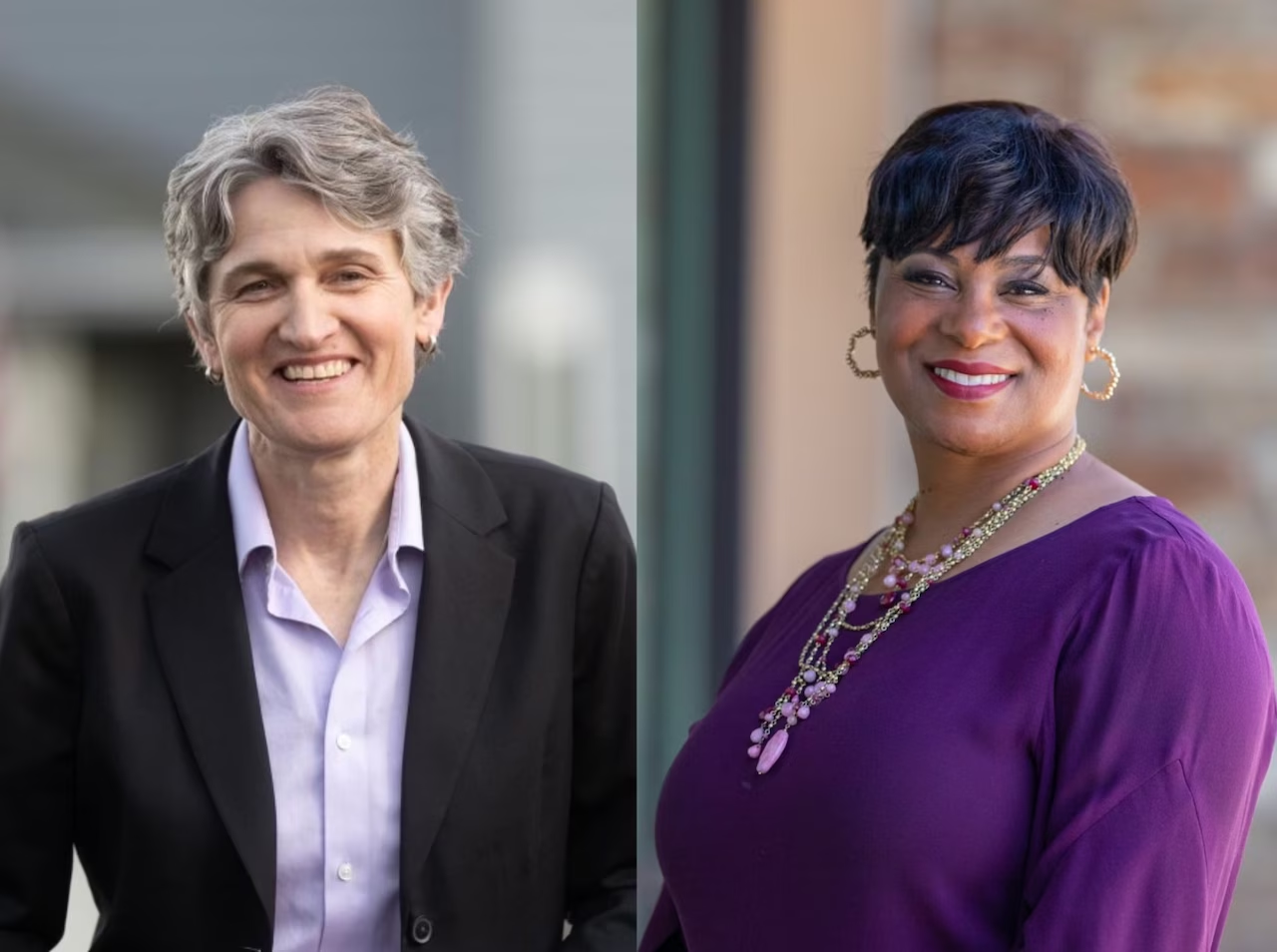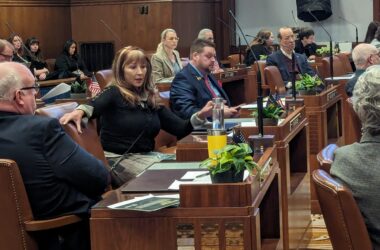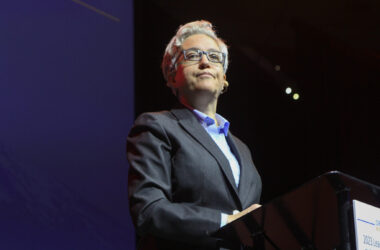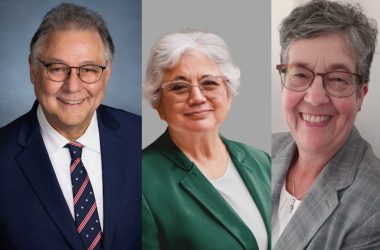The two Democratic candidates vying to oust first-term Republican U.S. Rep. Lori Chavez-DeRemer in the nationally-watched race for Oregon’s 5th District took shots at the incumbent Thursday as they tried to convince voters they’d be best to replace her.
Jamie McLeod-Skinner, an attorney and engineer, played up her experience working across political and rural-urban divides like those she’d face in Congress and said she’d be accountable to grassroots Oregonians funding her campaign. As in her two past runs for Congress, she is refusing corporate donations.
“People are tired of politics. They’re tired of the divisiveness. People just want solutions,” McLeod-Skinner said.
Janelle Bynum, a four-term member of the state House and small business owner who’s garnered key backing from national House Democrats, called attention to her experience as a state lawmaker and promised voters she’d work to build a better future for the next generation.
“At the end of the day, to me, it’s about our children: Are they safe? Are they nourished? Do they have access to a high quality education? Will they have better opportunities than their parents?” said Bynum, a mother of four.
During their Thursday evening debate, both candidates accused Chavez-DeRemer, a former mayor of Happy Valley who narrowly bested McLeod-Skinner for the office in 2022, of voting with “extremists” in the Republican party.
“If you lay down with dogs, you get up with fleas,” Bynum said. “You can’t shake that from your record, when you’re voting with the majority that is not moving our country forward.”
Each made claims about how successfully she outdid Chavez-DeRemer in the past. Bynum noted she bested Chavez-DeRemer twice in legislative elections, which covered a Democrat-leaning portion of Clackamas and Multnomah counties. McLeod-Skinner said that, despite losing to Chavez-DeRemer in a tight race in 2022, she beat the Republican in the district’s two most voter-heavy counties, Clackamas and Deschutes, both of which are competitive between Republicans and Democrats.
The debate was hosted by the City Club of Portland, even though the wide-ranging district, which stretches from Clackamas County south through Marion County and over the Cascades to Bend, includes just a sliver of Oregon’s largest city.
Moderator Les Zaitz, a former Oregonian reporter and current publisher of smaller news outlets around the state, pressed the candidates on practical steps they would take to move the needle in Congress. As Democrats, Zaitz asked, how would they get anything done if the Republican majority persists?
McLeod-Skinner said she has experience building consensus between Democrats and Republicans. As a member of the Oregon Watershed Enhancement Board, when faced with drought in central Oregon, she convened officials from both parties to support a water bank that the Legislature subsequently approved, she said.
“It’s not just about throwing elbows, it’s about getting to know your colleagues,” she said.
Bynum said she’s never had a problem getting along with people different from her, whether she stood apart as a woman, a Black person, a mother or a business owner. Bynum said she has learned to find ways to relate to people outside of political differences, including connecting with Republicans in the Legislature through a bipartisan prayer group.
Asked to name just one fix to stabilize America’s Social Security system, McLeod-Skinner said she’d demand that corporations pay their fair share. Bynum said America spends too much money on war and said she would fight the “uphill battle” in Congress that the country’s defense budget could be allocated to other priorities.
Asked what their top priorities would be upon taking office, Bynum cited infrastructure. Oregon needs roads and sewers and broadband electricity to build housing and grow industry, she said. Its citizens need hospitals and the mental health therapists they need to thrive in their communities.
McLeod-Skinner said her top focus would be the working family issues that “keep people up at night.” The cost of living is outpacing earnings, she said. She vowed to tackle issues of affordability including housing, health care and care for seniors and children.
Zaitz, who lives in eastern Oregon and owns a news outlet based there as well, asked both candidates how they would tackle issues that impact their urban and rural constituents differently.
McLeod-Skinner touted her hands-on work listening to communities in rural areas. Flexibility should be baked into legislation to ensure it doesn’t negatively affect some communities based on geography, she said
“We need more rural Democrats in Congress, because there is a perception – real or perceived – that urban Democrats look down their nose at rural folks,” she said earlier in the evening. McLeod-Skinner lives in the rural Deschutes County community of Terrebonne. Bynum lives in Happy Valley.
Bynum said that she refused to stoke division between urban and rural Oregonians. Issues like broadband access are not just a problem in rural areas, she said, but also a problem along busy corridors in east Portland. She agreed with McLeod-Skinner that policies should be flexible and promised to turn to people on the ground as the experts on policies that impact them.
“I’ve always been a leader that seeks to include everyone rather than feeding into a divisive argument,” she said. “People have very similar issues. It’s the contours of them that are just slightly different.”
Sami Edge covers higher education and politics for The Oregonian. You can reach her at [email protected] or (503) 260-3430.
STORY TIP OR IDEA? Send an email to Salem Reporter’s news team: [email protected].









